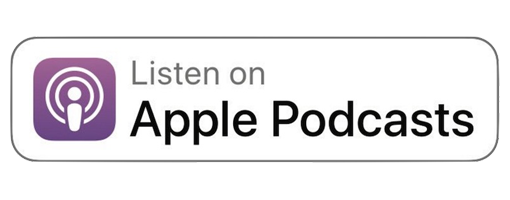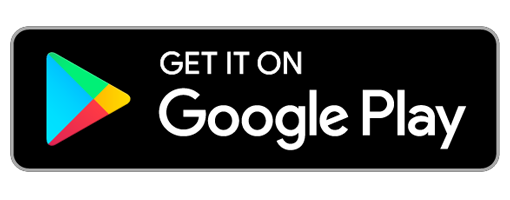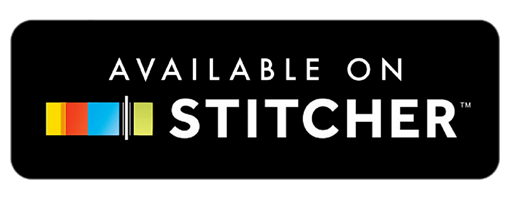Pronunciation TIPS
Differences Between American and British English
Spelling, Pronunciation, and Writing
When you first decided to learn English, did you think about the dialect of English you would learn? Did you consider whether you wanted to speak with a British or American accent?
Are you learning British English or American English? (Comment below. I would love to know which version of English you’re learning.)
Have you ever wondered why you see words with identical spellings being pronounced differently? You may have noticed these differences in films, series, interviews, podcasts and other media.
It’s clear that English (as beautiful as that language may be) is not a single language where everyone speaks with the same pronunciation. It varies according to the accent of each region, and especially when it comes to the difference between North American English and British English.
In order to communicate well with a native speaker, it is very important to understand these variations of accents and pronunciation. That’s why I have prepared an article full of information that will further complement your studies of British vs. American English.
To make the information even more complete, I have included the IPA transcription for each word, so you can know exactly how to pronounce them.
Ready to learn more? Let’s go!
DIFFERENCES IN SPELLING
AMERICAN ENGLISH (US) / BRITISH ENGLISH (UK)
1. Aluminum /əˈluː·mɪ·nəm/ Aluminium /ˌæl·jəˈmɪn·i·əm/
2. Analyze /ˈæn.əl.aɪz/ Analyse /ˈæn·ə·laɪz/
3. Apologize /əˈpɑː.lə.dʒaɪz/ Apologise /əˈpɒl.ə.dʒaɪz/
4. Appetizer /ˈæp.ə.taɪ.zər/ Appetiser /ˈæp.ə.taɪ.zə/
5. Behavior /bɪˈheɪ.vjɚ/ Behaviour /bɪˈheɪ.vjə/
6. Burned /ˌbɝːnd / Burnt /bɜːnt/
7. Canceled /kˈænsə͡ ld/ Cancelled /kˈansə͡ ld/
8. Catalog /ˈkæt̬.əl.ɑːɡ/ Catalogue /ˈkæt·əl·ɒɡ/
9. Center /ˌsen.t̬ɚ / Centre /ˈsen.t̬ɚ/
10. Check (noun) /tʃek/ Cheque (bank note) /tʃek/
11. Convertible /kənˈvərː.t̬ə.bəl/ Convertible /kənˈvɜː.tə.bəl/
12. Counselor /ˈkaʊn.səl.ər/ Counsellor /ˈkaʊn.səl.ə/
13. Curb /kɝːb/ Kerb /kɜːb/
14. Defense /dɪˈfens/ Defence /dɪˈfens/
15. Dialog /ˈdɑɪ·əˌlɔɡ, ˈdɑɪ·əˌlɑɡ/ Dialogue /ˈdaɪ·ə·lɒɡ/
16. Dreamed /dɹˈiːmd/ Dreamt /dɹˈɛmpt/
17. Enroll /ənˈroʊl/ Enrol /ɪnˈrəʊl/
18. Familiarize /fəˈmɪl·jəˌrɑɪz/ Familiarise /fəˈmɪl.i.ə.raɪz/
19. Favorite /ˈfeɪ.vər.ət/ Favourite /ˈfeɪ.vər.ɪt/
20. Fiber /ˈfaɪ.bər/ Fibre /ˈfaɪ.bɚ/
21. Fulfill /fʊlˈfɪl/ Fulfil /fʊlˈfɪl/
22. Gray /ɡreɪ/ Grey /ɡreɪ/
23. Honor /ˈɑː.nər/ Honour /ˈɒn·ə/
24. Humor /ˈhjuː.mər/ Humour /ˈhjuː.mə/
25. Inflection /ɪnˈflek.ʃən/ Inflexion /ɪnflˈɛkʃən/
26. Inquiry /ˈɪŋ.kwər.i/ Enquiry /ɪnˈkwaɪə.ri/
27. Jewelry /ˈdʒuːl.ri/ Jewellery /ˈdʒuː.əl.ri/
28. Labor /ˈleɪ.bər/ Labour /ˈleɪ·bə/
29. Liter /ˈliː.t̬ər/ Litre /ˈliː.t̬ɚ/
30. Meter /ˈmiː.t̬ər/ Metre /ˈmiː.tə/
31. Modeling /ˈmɑː.dəl.ɪŋ/ Modelling /ˈmɒd.əl.ɪŋ/
32. Neighbor /ˈneɪ·bər/ Neighbour /ˈneɪ.bər/
33. Odor /ˈoʊ·dər/ Odour /ˈəʊ.dər/
34. Offense /əˈfens/ Offence /əˈfens/
35. Organize /ˈɔːr.ɡən.aɪz/ Organise /ˈɔːr.ɡən.aɪz/
36. Pajamas /pəˈdʒɑː.məz/ Pyjamas /pɪˈdʒɑː.məz/
37. Paralyze /ˈper.əl.aɪz/ Paralyse /ˈpær.əl.aɪz/
38. Practice (verb) /ˈpræk.tɪs/ Practise /ˈpræk.tɪs/
39. Program /ˈproʊ.ɡræm/ Programme /ˈprəʊ.ɡræm/
40. Realize /ˈriː.ə.laɪz/ Realise /ˈrɪə.laɪz/
41. Skeptical /ˈskep.tɪ.kəl/ Sceptical /ˈskep.tɪ.kəl/
42. Skillful /ˈskɪl.fəl/ Skilful /ˈskɪl.fəl/
43. Smelled /smˈɛld/ Smelt /smˈɛlt/
44. Specialty /ˈspeʃ.əl.ti/ Speciality /ˌspeʃ.iˈæl.ə.ti/
45. Spoiled /spɔɪld/ Spoilt /spɔɪlt/
46. Story /ˈstɔːr.i/ Storey (of a building) /ˈstɔː.ri/
47. Theater / θi·ə·t̬ər/ Theatre /ˈθɪə·tər/
48. Traveled /ˈtræv.əld/ Travelled /ˈtræv.əld/
49. Traveler /ˈtræv.əl.ɚ/ Traveller /ˈtræv.əl.ər/
50. Traveling /ˈtræv.əl.ɪŋ/ Travelling /ˈtræv.əl.ɪŋ/
51. Whiskey /ˈwɪs.ki/ Whisky (Scotch) ; Whiskey (Irish) /ˈwɪs.ki/ /ˈwɪs.ki/
52. Woolen /ˈwʊl.ən/ Woollen /ˈwʊl.ən/
Master Your Pronunciation
Advance your skills with English professor, Andrea Giordano's 25-video Clear English Pronunciation course!
★ ★ ★ ★ ★
Horacio gave this 5-star review...
"This has to be one of the best (relatively) fast courses for English pronunciation I've found. Andrea has a great personality for teaching and even though is an online course, you'll feel that there's a level of intimacy, that she is not talking to a camera, but that instead, you're in class with her. I recommend this course if you have a basic understanding of English and your goal is to perfect your pronunciation."
EXAMPLES IN A SENTENCE
Aluminum / Aluminium (noun)
(US) Aluminum is an essential component in the kitchen, which helps to maintain the temperature of food.
(UK) Despite the lightness, electrical conductivity, and low cost for recycling, aluminium demands a high amount of energy to manufacture it, which greatly reduces its field of application.
Analyze / Analyse (verb)
(US) The goal is to analyze the topics that the school community is lacking to meet these needs.
(UK) The ability to analyse the best date to invest is the solution to leverage your business.
Apologize / Apologise (verb)
(US) I am the first to apologize when I realize I was wrong.
(UK) I apologise for that error.
Appetizer / Appetiser (noun)
(US) I searched for recipes to make appetizers for your birthday.
(UK) From appetisers to desserts, snacks and even meal suggestions, this restaurant has everything you need.
Behavior / Behaviour (noun)
(US) Students at this school should maintain positive behavior so you can achieve all your academic goals.
(UK) Their behaviour is usually excellent, but today, they’re not acting appropriately.
Burned / Burnt (verb)
(US) She burned her old love letters.
(UK) The film started with the scene of a door opening and the ceiling lights had been burnt out.
Canceled / Cancelled (verb)
(US) The 7:30 am flight to Miami was canceled.
(UK) A snowstorm cancelled Saturday’s flights.
Catalog / Catalogue (noun or verb)
(US) Our catalog of activities will soon be available on the website as well.
(UK) It is important to research more about the seabed, because the catalogue of marine animals still needs many animals to be registered.
Center / Centre (noun or verb)
(US) She loved visiting the city center at dawn to enjoy the sky.
(UK) The centre of interest now moves from Arabia to the United States.
Check / Cheque (noun)
(US) Why not make the check out to Dawn Cregg?
(UK) The buyers can request a specific cheque amount to use as a payment guarantee.
Convertible / Convertible (adjective)
(US) The convertible car is quite beautiful compared to other models, but a simpler car can meet the needs of our trip.
(UK) The convertible classroom could be arranged to fit 25 desks or 4 large tables.
Counselor / Counsellor (noun)
(US) A good counselor can solve the problem of selling the home.
(UK) When you go to school, look for a high school counselor to help you choose a university to attend.
Curb / Kerb (noun)
(US) The neighborhood should upgrade the curb near the entrance, since it got destroyed last week.
(UK) A concrete kerb slab marked the front of the property.
Defense / Defence (noun)
(US) The United States Navy acts in the defense of the country.
(UK) Her defence was clear since all witnesses knew that she was innocent.
Dialog / Dialogue (noun or verb)
(US) The document facilitates the opening of dialog between countries.
(UK) Especially in times of crisis, dialogue becomes an important problem-solving tool.
Dreamed / Dreamt (verb)
(US) She was everything he ever dreamed of.
(UK) I dreamt about moving to Spain for years before moving there.
Enroll / Enrol (verb)
(US) It is a great opportunity to be able to enroll and study at Boston University.
(UK) Do not forget the deadline for enrol in your course online.
Familiarize / Familiarise (verb)
(US) She wants to familiarize herself with the new house before moving in.
(UK) She glanced around the kitchen, knowing she should familiarise herself with it before cooking breakfast.
Favorite / Favourite (adjective)
(US) Knives Out is my favorite movie.
(UK) He’s my favourite character from the film.
Fiber / Fibre (noun)
(US) Fiber serves as a raw material for making various fabrics.
(UK) Fibres from different sources were used to make these slippers.
Fulfill / Fulfil (verb)
(US) You must fulfill what you promised her.
(UK) A car is designed to fulfil various safety conditions for the customer.
Gray / Grey (adjective)
(US) Look at those beautiful gray eyes.
(UK) The perfume packaging you asked me to buy is grey.
Honor / Honour (noun or verb)
(US) It is an honor to be working for such an impressive company.
(UK) The honour of class president should be given to the most qualified candidate.
Humor / Humour (noun)
(US) A great sense of humor is a positive quality to look for in a partner.
(UK) Our relationship is a mixture of good humour and companionship.
Inquiry / Enquiry (noun)
(US) An inquiry into the validity of the Tour de France win was launched when it was reported that the winner had been blood doping.
(UK) It would be interesting if an enquiry was carried out on the causes of society’s current ills.
Jewelry / Jewellery (noun)
(US) Her jewelry box was crafted out of wood and brass.
(UK) When Marcia visited Egypt last year, she loved seeing the jewellery in the pyramids.
Labor / Labour (noun)
(US) Internships usually consist of paid or unpaid labor, in order to apply what you have been learning in your studies.
(UK) He did not like the labour he did on a daily basis, so he is looking for a job again.
Liter / Litre (noun)
(US) For this chemistry project experiment, you will need 2 liters of water.
(UK) The litre is equal to a cubic decimeter.
Meter / Metre (noun)
(US) Let’s measure how many meters it is from the house to the sidewalk.
(UK) The tape measure is an instrument used to check how many metres in length a given object is.
Modeling / Modelling (noun)
(US) Modeling careers are still very much in demand today.
(UK) Go into modeling if that is your dream.
Neighbor / Neighbour (noun)
(US) I’m planning on taking an apple pie to my new neighbor.
(UK) I bought this land from my neighbour, who sold it after he retired.
Odor / Odour (noun)
(US) Red roses have an unmistakable odor.
(UK) The foul odour could be smelt throughout the train.
Offense / Offence (noun)
(US) Before you take on offense, try to understand what she was saying.
(UK) Whether what you did is an offence is for the judge to decide.
Organize / Organise (verb)
(US) Congress issued orders for the military to organize the attack.
(UK) She said that if she could organise herself, she would do all the activities proposed by the teacher.
Pajamas / Pyjamas (noun)
(US) He bought new pajamas and planned to wear them on his trip this fall.
(UK) Those pyjamas were expensive, but he decided to buy them anyway, because they were beautiful.
Paralyze / Paralyse (verb)
(US) You shouldn’t paralyze your dreams because other people do not believe in them.
(UK) The bicycle accident paralysed the man from the waist down.
Practice / Practise (verb or noun)
(US) You must practice your exercises every day.
(UK) How do you intend to put these plans into practise?
Program / Programme (noun)
(US) She made contact with the program director so that she could participate as a student.
(UK) The program started very well, and the audience rating is already high.
Realize / Realise (verb)
(US) She did not realize her dream until today, when she walked across the graduation stage.
(UK) I didn’t realise you felt that way.
Skeptical / Sceptical (adjective)
(US) He was skeptical, but he changed his beliefs when he saw that miracle happen.
(UK) He looked at her with a sceptical look, but deep down he hoped it would work.
Skillful / Skilful (noun)
(US) That is a skillful clarinet player.
(UK) She seems quite skilful and may be of use to us.
Smelled / Smelt (verb)
(US) Her house smelled like a garden.
(UK) He smelt so good that he stood out from the crowd.
Specialty / Speciality (noun)
(US) The Western omelet was that chef’s specialty.
(UK) Teaching new languages was that teacher’s speciality.
Spoiled / Spoilt (adjective)
(US) It was sad to see how spoiled that child was.
(UK) He spoiled the film when he told me the end before I watched it.
Story / Storey (noun)
(US) The girl loved that her aunt told her a story before she fell asleep.
(UK) The houses in this neighborhood are often one storey only.
Theater / Theatre (noun)
(US) I would love to go to the theater tonight.
(UK) Some remains of the old theatre are still visible.
Traveled / Travelled (adjective)
(US) When I traveled to the beach, I met a lot of nice people.
(UK) I paid more when I travelled with that airline and I did not regret it, because the service is really excellent.
Traveler / Traveller (noun)
(US) I am an avid traveler.
(UK) Pietro was a lone traveller who had a lot of experience with boats.
Traveling / Travelling (noun)
(US) I enjoy traveling, mainly to the USA.
(UK) My friends and I were travelling back to Boston when it started to snow.
Whisky (Scotch) ; Whiskey (Irish) (noun)
(US) He knew several secrets to making whisky.
(UK) The bar offered several drinks with whiskey in the composition.
Woolen / Woollen (adjective or noun)
(US) A woolen robe is the perfect choice when it is very cold.
(UK) I like to use a lot of blankets, especially woollen ones.
In the study of the English language it is very important how words are used and how they are applied to different contexts. So, before you think that the spelling of a word is wrong, first analyze whether it is written in American or British English. That’s right, the spelling of certain words changes and that’s what we’re going to study.
Master Your Pronunciation
Advance your skills with English professor, Andrea Giordano's 25-video Clear English Pronunciation course!
★ ★ ★ ★ ★
Horacio gave this 5-star review...
"This has to be one of the best (relatively) fast courses for English pronunciation I've found. Andrea has a great personality for teaching and even though is an online course, you'll feel that there's a level of intimacy, that she is not talking to a camera, but that instead, you're in class with her. I recommend this course if you have a basic understanding of English and your goal is to perfect your pronunciation."
VOCABULARY DIFFERENCES
AMERICAN ENGLISH (US) / BRITISH ENGLISH (UK)
1. Airplane /ˈer.pleɪn/ Aeroplane /ˈeə.rə.pleɪn/
2. Apartment /əˈpɑrt·mənt/ Apartment Flat /əˈpɑːt·mənt/ ; /flæt/
3. Apartment building /əˈpɑːrt.mənt ˌbɪl.dɪŋ/ Block of flats /ˌblɒk əv ˈflæts/
4. Appointment book /əˈpɔɪnt.mənt bʊk/ Diary /ˈdaɪə.ri/
5. Area code /ˈer.i.ə ˌkoʊd/ Dialing code /ˈdaɪəlɪŋ koʊd/
6. Attorney; Lawyer /əˈt ɛ r.ni/ Solicitor ; Barrister /səˈlɪs.ɪ.tər/ /ˈbær.ɪ.stər/
7. Bar /bɑːr/ Pub /pʌb/
8. Billfold /ˈbɪl.foʊld/ Wallet /ˈwɒl.ɪt/
9. Busy /ˈbɪz.i/ Engaged (phone) /ɪnˈɡeɪdʒd/
10. Cafeteria /ˌkæf.əˈtɪr.i.ə/ Canteen /kænˈtiːn/
11. Candy /ˈkæn.di/ Sweets /swˈiːts/
12. Cell phone /ˈsel foʊn/ Mobile phone /ˌməʊ.baɪl ˈfəʊn/
13. Checking account /ˈtʃek.ɪŋ əˌkaʊnt/ Current account /ˈkʌr.ənt əˌkaʊnt/
14. Chips (thin slices) /tʃɪps/ Crisps (thin slices) /krɪsp/
15. Closet /ˈklɑː.zət/ Wardrobe /ˈwɔː.drəʊb/
16. Color /ˈkʌl. ər / Colour /ˈkʌl.ər/
17. Cookie ; Cracker /ˈkʊk.i/ /ˈkræk. ər / Biscuit /ˈbɪs.kɪt/
18. Corn /kɔːrn/ Sweet corn ; Maize /swiːt kɔːn/ /meɪz/
19. Crazy /ˈkreɪ.zi/ Mad /mæd/
20. Crib /krɪb/ Cot /kɒt/
21. Crosswalk /ˈkrɑːs.wɑːk/ Zebra crossing /zeb.rə ˈkrɒs.ɪŋ/
22. Dessert /dɪˈzɝːt/ Pudding /ˈpʊd.ɪŋ/
23. Diaper /ˈdɑɪ·pər/ Nappy /ˈnæp·i/
24. Dirt road /ˌdɝːt ˈroʊd/ Unpaved road /ʌnpˈeɪvd ɹˈəʊd/
25. Doctor’s office /ˈdɑk·tərz ˈɑː.fɪs / Surgery /ˈsɜː.dʒər.i/
26. Downtown /ˌdaʊnˈtaʊn/ City centre ; Town centre /ˌsɪt̬.i ˈsen.t̬ɚ/ /taʊn ˈsen.tər/
27. Driver’s license /ˈdraɪ.vɚz ˌlaɪ.səns/ Driving-licence /ˈdraɪ.vɪŋ ˌlaɪ.səns/
28. Drugstore ; Pharmacy /ˈdrʌɡ.stɔːr/ /ˈfɑːr.mə.si/ Chemist’s /ˈkem.ɪsts/
29. Eggplant /ˈeɡ.plænt/ Aubergine /ˈəʊ.bə.ʒiːn/
30. Elevator /ˈel.ə.veɪ.t̬ɚ/ Lift /lɪft/
31. Engine hood /ˈen.dʒɪn hʊd/ Bonnet /ˈbɒn.ɪt/
32. Eraser /ɪˈreɪ.sɚ/ Rubber /ˈrʌb.ər/
33. Faculty /ˈfæk.əl.t̬i/ Academic staff /ˌæk.əˈdem.ɪk stɑːf/
34. Fall /fɑːl/ Autumn /ˈɔː.təm/
35. Fire department /ˈfaɪr dɪˌpɑːrt.mənt/ Fire brigade /ˈfaɪə brɪˌɡeɪd/
36. First floor /ˌfɝːst ˈflɔːr/ Ground floor /ˌɡraʊnd ˈflɔːr/
37. Flashlight /ˈflæʃ.laɪt/ Torch /tɔːtʃ/
38. For rent /fɚ /rent/ To let /ˌtəˈlet/
39. Freeway /ˈfriː.weɪ/ Motorway /ˈməʊ.tə.weɪ/
40. French fries (long format) /ˈfrentʃ ˈfrɑɪz/ Chips (long format) /tʃɪps/
41. Front desk /frʌnt desk/ Reception /rɪˈsep.ʃən/
42. Garbage ; Trash /ˈɡɑːr.bɪdʒ/ /træʃ/ Rubbish ; Litter /ˈrʌb.ɪʃ/ /ˈlɪt.ər/
43. Garbage can /ˈɡɑːr.bɪdʒ ˌkæn/ Dustbin /ˈdʌst.bɪn/
44. Garbage collector /ˈɡɑːr.bɪdʒ kəˌlek.tɚ/ Dustbin man /ˈdʌst.bɪn mæn /
45. Garbage truck /ˈɡɑːr.bɪdʒ ˌtrʌk/ Dustbin lorry /ˈdʌst.bɪn ˈlɒr.i/
46. Gas; Gasoline /ɡæs/ /ˈɡæs.əl.iːn/ Petrol /ˈpet.rəl/
47. Graduate studies /ˈɡrædʒ.u.ət ˈstʌd·iz / Postgraduate course /ˌpoʊstˈɡrædʒ.u.ət kɔːs /
49. Guy (person) /ɡaɪ/ Bloke /bləʊk/
49. Highway ; Freeway /ˈhaɪ.weɪ/ /ˈfriː.weɪ/ Main road ; Motorway /ˌmeɪn ˈrəʊd/ /ˈməʊ.tə.weɪ/
50. Hood (of a car) /hʊd/ Bonnet /ˈbɒn.ɪt/
51. Intersection /ˌɪn.t̬ɚˈsek.ʃən/ Crossroads /ˈkrɒs.rəʊdz/
52. Jail /dʒeɪl/ Prison /pɹˈɪzən/
53. Kerosene /ˈker.ə.siːn/ Paraffin /ˈpær.ə.fɪn/
54. Labor union /ˈleɪ.bɚ ˌjuː.ni.ən/ Trade union /ˌtreɪd ˈjuː.ni.ən/
54. Bathroom /ˈbæθ.ruːm/ Toilet (public) /ˈtɔɪ.lət/
55. License plate /ˈlaɪ.səns ˌpleɪt/ Number plate /ˈnʌm.bə ˌpleɪt/
56. Mailbox /ˈmeɪl.bɑːks/ Pillar box /ˈpɪl.ə bɒks/
57. Mailman /ˈmeɪl.mæn/ Postman /ˈpəʊst.mən/
58. Math /mæθ/ Maths /mæθs/
59. Mean /miːn/ Nasty /ˈnɑː.sti/
60. Mechanical pencil /məˌkæn.ɪ.kəl ˈpen.səl/ Propelling pencil /prəˌpel.ɪŋ ˈpen.səl/
61. Mom ; Mommy /mɑːm/ /ˈmɑː.mi/ Mum; Mummy /mʌm/ /ˈmʌm.i/
62. Motor home /ˈmoʊ.t̬ɚ ˌhoʊm/ Caravan /ˈkær.ə.væn/
63. Movie theater /ˈmuː.vi ˌθiː.ə.t̬ɚ/ Cinema /ˈsɪn.ə.mə/
64. Movie /ˈmuː.vi/ Film /fɪlm/
65. Muffler /ˈmʌf.lɚ/ Silencer /ˈsaɪ.lən.sər/
66. National holiday /ˌnæʃ.ən.əl ˈhɑː.lə.deɪ/ Bank holiday /ˌbæŋk ˈhɒl.ə.deɪ/
67. One-way ticket /ˌwʌnˈweɪ ˈtɪk.ɪt / Single ticket /ˈsɪŋ.ɡəl ˈtɪk.ɪt /
68. Oven /ˈʌv.ən/ Cooker /ˈkʊk.ər/
69. Overpass /ˈoʊ.vɚ.pæs/ Flyover /ˈflaɪˌəʊ.vər/
70. Pacifier /ˈpæs.ə.faɪ.ɚ/ Dummy /ˈdʌm.i/
71. Pants /pænts/ Trousers /ˈtraʊ.zəz/
72. Parking lot /ˈpɑːr.kɪŋ ˌlɑːt/ Car park /ˈkɑː ˌpɑːk/
73. Pavement /ˈpeɪv.mənt/ Road surface /rəʊd ˈsɜː.fɪs/
74. Period /ˈpɪr.i.əd/ Full stop /ˌfʊl ˈstɒp/
75. Pitcher /ˈpɪtʃ.ɚ/ Jug /dʒʌɡ/
76. Principal /ˈprɪn.sə.pəl/ Headteacher ; Headmaster /ˌhedˈtiː.tʃər/ /ˌhedˈmɑː.stər/
77. Private school /ˌpraɪ.vət ˈskuːl/ Independent school /ˌɪn.dɪ.pen.dənt ˈskuːl/
78. Public school /ˌpʌb.lɪk ˈskuːl/ State school /ˈsteɪt ˌskuːl/
79. Quotation marks /kwoʊˈteɪ.ʃən ˌmɑːrks/ Speech marks /spiːtʃ mɑːks/
80. Railroad /ˈreɪl.roʊd/ Railway /ˈreɪl.weɪ/
81. Raise /reɪz/ Rise (in salary) /raɪz/
82. Resume /rɪˈzuːm/ Curriculum Vitae – CV /kəˌrɪk.jə.ləm ˈviː.taɪ/
83. Roommate /ˈruːm.meɪt/ Flatmate /ˈflæt.meɪt/
84. Schedule /ˈskedʒ.uːl/ Timetable /ˈtaɪmˌteɪ.bəl/
85. Scotch tape /ˌskɑːtʃ ˈteɪp/ Sellotape /ˈsel.ə.teɪp/
86. Shoulder /ˈʃoʊl.dɚ/ Hard shoulder /ˌhɑːd ˈʃəʊl.dər/
87. Sidewalk /ˈsaɪd.wɑːk/ Pavement ; Footpath /ˈpeɪv.mənt/ /ˈfʊt.pɑːθ/
88. Sneakers /ˈsniː.kərz / Trainers /ˈtreɪ.nərz/
89. Soccer /ˈsɑː.kər / Football /ˈfʊt.bɔːl/
90. Soda ; Pop /ˈsoʊ.də/ /pɑːp/ Soft drink /ˌsɒft ˈdrɪŋk/
91. Stand in line /stænd laɪn/ Queue /kjuː/
92. Store /stɔːr/ Shop /ʃɒp/
93. Stove /stoʊv/ Cooker /ˈkʊk.ər/
94. Subway /ˈsʌb.weɪ/ Underground ; Tube /ˌʌn.dəˈɡraʊnd/ /tʃuːb/
95. Tire /taɪr/ Tyre /taɪər/
96. Truck /trʌk/ Van Lorry /væn/ /ˈlɒr.i/
97. Trunk (of a car) /trʌŋk/ Boot /buːt/
98. TV program /ˌtiˈvi/ /ˈproʊ.ɡræm/ TV programme /ˌtiːˈviː/ /ˈprəʊ·ɡræm/
99. Two weeks /tuː /wiːks/ Fortnight /ˈfɔːt.naɪt/
100. Vacation /veɪˈkeɪ.ʃən/ Holiday /ˈhɒl.ə.deɪ/
101. Zee (the letter) /ziː/ Zed (the letter) /zed/
102. Zip code /ˈzɪp ˌkoʊd/ Postcode /ˈpəʊst.kəʊd/
103. Zipper /ˈzɪp ər / Zip /zɪp/
Now you can understand why you still confused the spelling and pronunciation of some English words? Certainly, today was the day to acquire a lot of important knowledge!
These American vs. British English word lists should help you understand some of the spelling differences between the two types of English.
Are there any British or American words that I left off the list that you would like me to explain?
Comment below and let me know.
Happy learning!

Jhessika Nascimento
Contributing Author
Jhessika Nascimento is a bilingual teacher of English and Portuguese, with degrees in Portuguese and English letters and Teaching in Higher Education. Jhessika is a contributing writer to Study With Andrea, and lives in Brasilia, Brazil.
Master Your Pronunciation
Advance your skills with English professor, Andrea Giordano's 25-video Clear English Pronunciation course!
★ ★ ★ ★ ★
Horacio gave this 5-star review...
"This has to be one of the best (relatively) fast courses for English pronunciation I've found. Andrea has a great personality for teaching and even though is an online course, you'll feel that there's a level of intimacy, that she is not talking to a camera, but that instead, you're in class with her. I recommend this course if you have a basic understanding of English and your goal is to perfect your pronunciation."
The following is a TOEFL Reading practice test to help you prepare for the Reading section of the TOEFL test.
Instructions: Read the sample passage below and then answer the questions that follow.
TOEFL Reading Practice Passage
Gorillas are ground-dwelling, predominantly herbivorous apes that inhabit the forest of central Sub-Saharan Africa. The genus Gorilla is divided into two species: the eastern gorillas and the western gorillas (both critically endangered), and either four or five subspecies. They are the largest living primates. The DNA of gorillas is highly similar to that of humans, from 95 to 99% depending on what is included, and they are the next closest living relatives to humans after the chimpanzees and bonobos.
Gorillas' natural habitats cover tropical or subtropical forest in Sub-Saharan Africa. Although their range covers a small percentage of Sub-Saharan Africa, gorillas cover a wide range of elevations. The mountain gorilla inhabits the Albertine Rift montane cloud forests of the Virunga Volcanoes, ranging in altitude from 2,200 to 4,300 metres (7,200 to 14,100 ft). Lowland gorillas live in dense forests and lowland swamps and marshes as low as sea level, with western lowland gorillas living in Central West African countries and eastern lowland gorillas living in the Democratic Republic of the Congo near its border with Rwanda.
(#1) Gorillas move around by knuckle-walking, although they sometimes walk upright for short distances, typically while carrying food or in defensive situations. (#2) A 2018 study investigating the hand posture of 77 mountain gorillas at Bwindi Impenetrable National Park (8% of the population) found that knuckle walking was done only 60% of the time, and they also supported their weight on their fists, the backs of their hands/feet, and on their palms/soles (with the digits flexed). (#3) Studies of gorilla handedness have yielded varying results, with some arguing for no preference for either hand, and others right-hand dominance for the general population. (#4)
The eastern gorilla is more darkly colored than the western gorilla, with the mountain gorilla being the darkest of all. The mountain gorilla also has the thickest hair. The western lowland gorilla can be brown or grayish with a reddish forehead. In addition, gorillas that live in lowland forest are more slender and agile than the more bulky mountain gorillas. The eastern gorilla also has a longer face and broader chest than the western gorilla. Like humans, gorillas have individual fingerprints. Their eye color is dark brown, framed by a black ring around the iris. Gorilla facial structure is described as mandibular prognathism, that is, the mandible protrudes farther out than the maxilla. Adult males also have a prominent sagittal crest.
A gorilla's lifespan is normally between 35 and 40 years, although zoo gorillas may live for 50 years or more. Colo, a female western gorilla at the Columbus Zoo and Aquarium, was the oldest known gorilla at 60 years of age when she died on 17 January 2017.
Questions
1. According to the passage, gorillas can live in
a. a variety of altitudes.
b. several different countries in Africa.
c. thick forests.
d. lowland forests only.
2. All of the following is true about gorillas EXCEPT
a. they primarily eat smaller animals.
b. they live in a forest habitat.
c. their genetics are similar to humans.
d. their diet consists of vegetation.
3. Look at the word predominantly in paragraph 1. The word predominantly in this passage refers to
a. impulsively
b. unfortunately
c. mainly
d. lastly
4. Look at the word inhabits in paragraph 2. The word inhabits in this passage refers to
a. lives in
b. protects
c. goes
d. works
5. The author implies that
a. most gorillas prefer using their left hand over their right.
b. gorillas rarely walk on their knuckles.
c. gorillas regularly walk upright for long distances.
d. studies haven't solidly proven which hand gorillas prefer using.
6. Why does the writer mention that the eastern gorilla also has a longer face and broader chest than the western gorilla?
a. To validate the importance a broad chest in western gorillas
b. To define the meaning of "broad"
c. To highlight a physical difference between types of gorillas
d. To demonstrate that most gorillas are identical in physical build
7. Which of the following statements is true for BOTH eastern and western gorillas.
a. Both eastern and western gorrilas are brown with red foreheads.
b. Both eastern and western gorrilas have unique fingerprints.
c. Both eastern and western gorrilas have thin hair.
d. Both eastern and western gorrilas have light brown eyes.
8. In Paragraph 3, look at the four numbers (#1, #2, #3, #4) that indicate where the following sentence would be added to the passage.
Such a range of hand postures was previously thought to have been used by only orangutans.
Where would the sentence best fit?
(View all the correct answers below.)
Great job! If you're ready to take your TOEFL preparation to the next level, go to StudyWithAndrea.com/TOEFL.
Answers: 1. d 2. a 3. c 4. a 5. d 6. c 7. b 8. #3
Click on one of the following links to start speaking clearer English!
1) TOEFL MASTER CLASS
2) free mini-course "punctuation mistakes to avoid"
3) Clear English Pronunciation Video Course
4) English Vocabulary - Audio Files & PDF - TOEFL & IELTS
About Andrea
Andrea Giordano is the founder of StudyWithAndrea.com and has taught more than 1,000,000 students from 180 countries. Andrea holds a Master of Education (TESOL) from Shenandoah University, and is the former Executive Director of TESOL and ESL programs at Campbellsville University. Andrea is a proven leader in online English teaching and is driven by her passion to help you speak English clearly.





